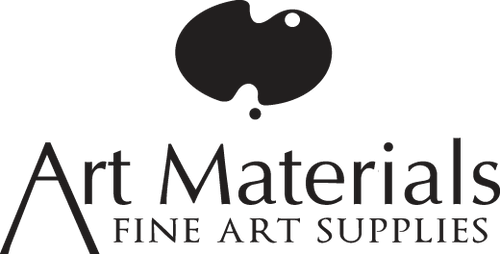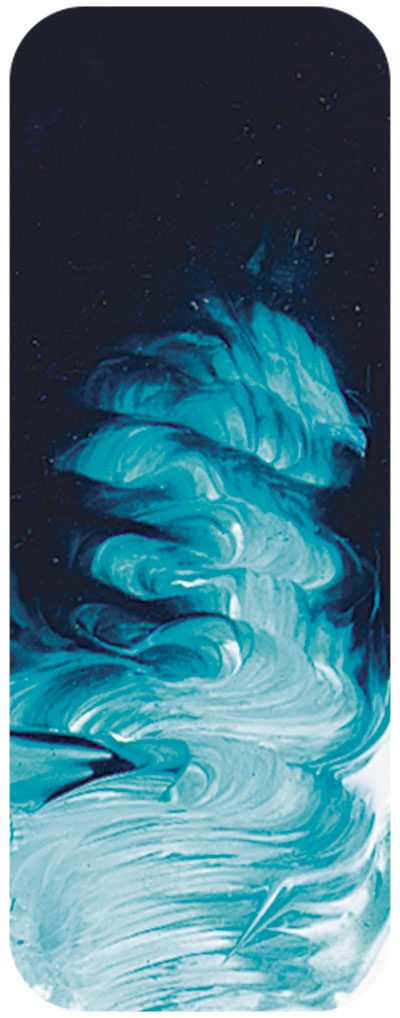Southern Ocean Blue Matisse Fluid 135ml
Description
"Southern Ocean Blue is the sort of deep turquoise colour that is found in the deep oceans. It is a blend of green and blue phthalocyanine and this makes a transparent and very dark turquoise colour. A deep transparent and very permanent blueish turquoise colour like this was not possible for the artist to use before the early 20th century. Phthalocyanine has been of extraordinary benefit to the artist.
Because pigments like this are products of laboratories and the experiments of chemists we have a tendency to think of these synthetic dyes as being particularly unnatural but the truth is more complex than that. These compounds are called organic colours for the simple reason that they contain carbon atoms in their molecules. The fact that they are organic makes them very closely related to compounds that occur naturally in the body. The quinacridone pigments, the pyrroles, and the phthalocyanines in particular are variations of the natural pigments in human bile. This natural bile colourant is called pyrrole and is the source of the name of the synthetic red pigment we use which is chemically very very similar in its structure. Some artists get confused when googling ??pyrrole pigment?? because most of the articles tend to relate to the medical pyrrole in the body and diseases associated with it, and don???t realize that this is not applicable to the artists pigment which in normal usage is essentially non-toxic.
These pyrrole-like artist pigments all share the quality of being extremely resistant to light. Pyrrole red for example is the first red pigment to be found to be more light resistant than Cadmium Red. Phthalo Blue, which is in Southern Ocean Blue is used in some lightfast rating systems as the standard for measuring whether or not a pigment has the highest permanency rating or not. If a colour is as permanent as Phthalo Blue it is usually regarded as being in the highest category.
Southern Ocean Blue has many uses for both landscape and marine artists. As its name suggests it does evoke the colours of the deep ocean. It works well in conjunction with Cobalt Turquoise to mix a wide range of the deepest green-blue and blue-green colours. Using Australian Ghost Gum to lighten the colour gives the sort of mid and light turquoise colours found in the cold oceans. A variation sometimes useful for stormy weather is the sort of ocean blue-green made by adding a little Australian Salmon Gum to Southern Ocean Blue.
For a more tropical sea mix Southern Ocean Blue with Cobalt Teal. Less of the teal makes the inky dark colours of the Coral Sea outside the Great Barrier Reef and more teal gives water colours inside the reef. Adding a little Hansa Light Yellow to the Cobalt Teal and Southern Ocean Blue gives the more green colours found in the very shallow water.
The landscape artist can also enjoy using this colour. It can be a great starting point for making forest greens. A beautiful very dark green like a very clean transparent Hookers Green can be made by mixing Southern Ocean Blue with Transparent Yellow Oxide while a very useful mid grass green colour can be made by mixing the Southern Ocean Blue with Iso Yellow. A brighter lime green colour similar to a cadmium green can be made with either Cadmium Yellow Light or with Bismuth Yellow. Southern Ocean Blue might invoke the poetry of clipper ships circumnavigating the globe in the great ocean to the south of Australia, but it is equally at home in tropical seas and the middle of the forest. it is a colour for all seasons.
"


